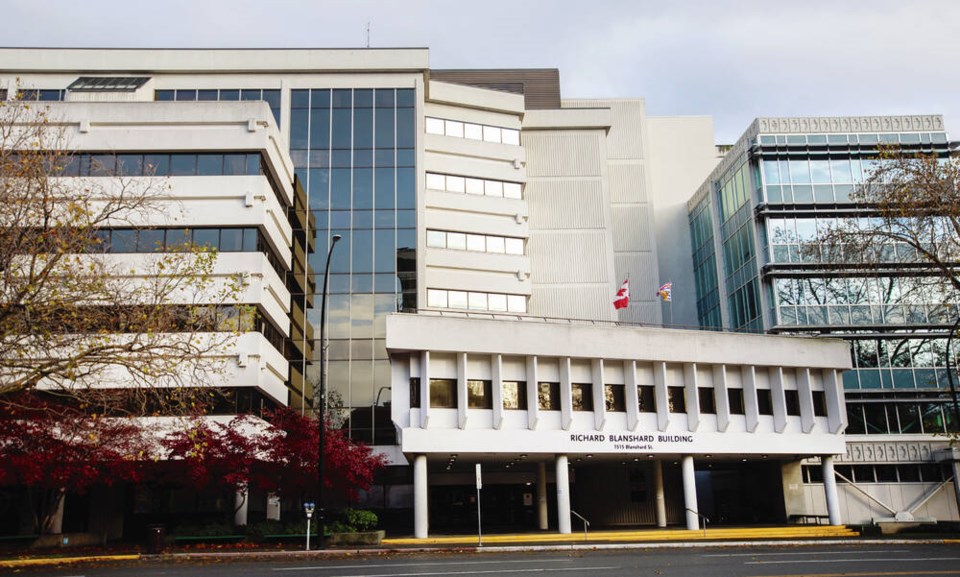Just over one per cent of B.C. government employees — 432 people — will be placed on unpaid leave after failing to get vaccinated against COVID-19 or declining to disclose their vaccination status as required.
All those employed by the B.C. Public Service were required to be fully vaccinated against COVID-19 by Nov. 22.
Unvaccinated employees are not allowed to use vacation or banked time in lieu of the unpaid leave, which is for an initial three months. At the end of that period, employees who remain unvaccinated or refuse to disclose their status could be terminated, the B.C. Public Service Agency said Tuesday.
Of the more than 98 per cent of employees — 38,240 people — who showed proof of vaccination by the deadline, 97 per cent were fully vaccinated, and 1.15 per cent were partially vaccinated, the agency said.
Those who only have one shot of a two-dose COVID vaccine have 35 days from the date of their first dose to become fully vaccinated, the agency said.
Fewer than one per cent, or 274 employees, have requested an accommodation based on a medical condition or other protected grounds. “These requests are being reviewed on a case-by-case basis,” said the agency.
Employees currently on leave are required to provide proof of vaccination when they return to work.
The proof of vaccination requirement applies to employees of any board, commission, agency or organization to which the Public Service Act applies, or whose employees are hired in accordance with the Public Service Act.
Agencies, boards and commissions were not, however, required to report their data to the B.C. Public Service Agency.
The B.C. General Employees’ Union said Tuesday that their members make up about 30,000 government employees and the vast majority are fully vaccinated. The union did not know Tuesday how many of the 432 public service employees who did not submit their vaccination status are members.
A potentially more contentious issue is returning to offices from working remotely at home. Concerns include being indoors in possibly confined spaces amid the pandemic at a time when a new variant of concern has been detected in the province, the beginning of flu season, and the threat of breakthrough cases.
Government employees were initially expected to return to their offices Nov. 22, but that was later extended to Dec. 1.
On Tuesday, it was extended again until Jan. 4, because of a provincial health order limiting non-essential travel due to gasoline restrictions in the aftermath of the Nov. 14-15 rainstorm that flooded communities, damaged roads and restricted fuel delivery.
The BCGEU said it was pleased that remote work agreements have been extended until the new year.
Until Dec. 14, drivers of non-essential vehicles are limited to purchasing 30 litres of fuel per trip to the gas station on Vancouver Island and the Gulf Islands, and in the Lower Mainland as far as Hope, the Sunshine Coast and the Sea-to-Sky region.
Drivers were asked by Energy, Mines and Petroleum Minister Bruce Ralston on Monday to work from home, avoid recreational travel and use public transit where possible to reduce gas consumption.
The public service agency said Tuesday that contractors and others accessing employee-only areas of indoor public service workplaces will be required to be fully vaccinated by Dec. 13, although the requirement won’t apply to members of the public accessing government services.



